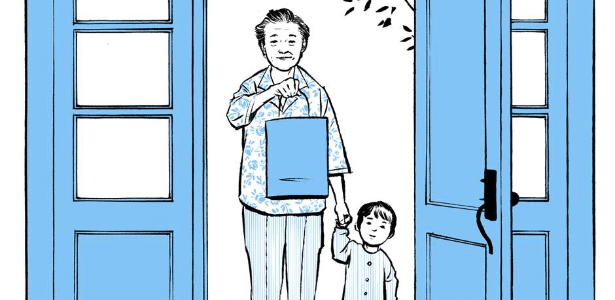Searches for the treatment of retinitis pigmentosa, a disease that affects the children of Canadian couple Edith Lemay and Sébastien, have increased by more than 120% on Google since last week. The family’s story generated global turmoil after the couple revealed they were going on a trip to several countries before three of their four children lost their sight to the problem.
The World Health Organization (WHO) estimates that in Brazil about 50,000 people suffer from this problem. “There is still no cure for retinitis pigmentosa, but several studies are underway with promising results,” says ophthalmologist Camila Ventura, of HOPE, an ophthalmology referral hospital in the Vision One network.
Camila explains that even if the disease is incurable, it is still possible to monitor it to improve the patient’s living conditions. “We follow these patients at HOPE via the retina specialist to follow the evolution of the disease and with the low vision specialist to adapt the optical aids”, he explains. “In addition, depending on the patient’s needs, we refer them to different therapies such as orientation and mobility and assistive technologies”, adds the retina specialist.
The disease impairs the formation of the visual image and has a hereditary origin. Extremely rare, it affects an average of 1 in 4,000 people worldwide. Diagnosis is made by performing tests such as fundus/retinal mapping, retinography, and ocular tomography.
In general, the main symptoms of retinitis pigmentosa are: difficulty seeing at night, impaired side vision, loss of peripheral vision and stumbling at night. Over time, the disease progresses and the patient can only see a central cut of what is happening around him.
Other recommended precautions are the use of glasses with UV-A protection and the prescription of magnifying glasses and other optical aids. Experts advised Edith and Sébastien to help their children develop the skills needed to be independent before the disease progresses. So far, the family has visited Mongolia, Turkey, Tanzania and Zambia and the trip is expected to last around a year.
remember the case
In 2019, Canadian couple Edith Lemay and Sébastien Pelletier learned that three of their four children had retinitis pigmentosa, a rare and progressive retinal disease that causes partial or total loss of vision. The two then began planning a trip around the world in the family van, so the children could collect visual memories.

“Total troublemaker. Alcohol aficionado. Social media specialist. Friendly travel nerd.”






